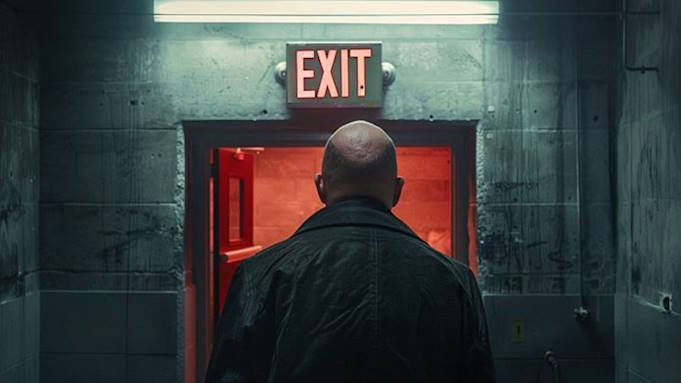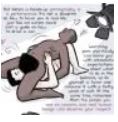
The Pros and Consequences of Chuck Winder’s Loss
For the first time in Idaho history, a sitting Senate President Pro Tempore* was ousted in a primary. His victorious challenger: Josh Keyser. For the past several years, many people have opined that if Chuck Winder could not act and vote in alignment with the state’s Republican Party Platform, then it was time for him to retire.
On May 21, Mr. Winder did not need to make that decision. The voters made it for him.
The day after the election, Winder appeared on KTVB in Boise to discuss his loss. Here are some of the reasons he provided:
- There was no presidential race on the ballot, so many voters stayed home.
- NOTE: Winder was a driving force behind removing the presidential primary in Idaho. Call it karma.
- His opponent (Josh Keyser) was out knocking on doors while the legislature was still in session
- NOTE: This was true for all incumbents – even the ones who won re-election.
- Winder was accused of being a “big spender,” and once that projection was out there it was tough to get that out of people’s minds.
- NOTE: Winder’s voting record has always been public and he has regularly received an “F” rating on spending. In 2022 his spending rating was 6/10 of a percentage point different from Senate’s Democrat minority leader.
- “They” picked Winder off using “really ugly, dirty politics in their promotions.”
- NOTE: Facts are facts, and facts might expose how ones actions are not appealing to Idaho voters. Winder provides no examples of the “really ugly, dirty politics” he claims were used to oust him.
Pros of Winder Leaving
Many positives emerge with Chuck Winder’s departure. Here are just a few likely benefits:
1. More House Bills Might Get Heard
It’s long been discussed in the halls of the statehouse that Idaho’s Senate served as the governor’s arm in the legislature. After all, it’s easier for a governor to influence and control 18 senators (out of 35) instead of 36 representatives (out of 70.)
As leader of the Senate, Chuck Winder decided who would serve on which committees and who would serve as the chair and vice chair of each committee. That was his right as President Pro Tem.
Privately, legislators said Winder served the governor more than he served the people of Idaho, and that he often influenced committee chairs to stick bills in drawers so they didn’t get debated or voted on. Publicly, Winder denied that happened, but privately, legislators said it happened all the time.
Winder all but tipped his hand regarding this practice in March of 2022, when he publicly said, “There are a lot of bills, more so than normal, that are in drawers on our side of the building. I think most of them will stay there, so I don’t think you’ll see some of the craziness that the House seems to like to do get very far in the Senate.”
2. The Will of the People Might Get Respected
On multiple occasions, Winder referred to bills passed by Idaho’s House of Representatives as “crazy.” It would have been nice for Winder to remember that members of the House of Representatives are elected by the people of Idaho to represent their views. With that, if a majority of House members vote a certain way, those votes are said to indicate the will of the people.
 Winder said it was craziness for Idahoans to not want certain books to be freely accessible to children of all ages in libraries – books that contain graphic illustrations of teens pleasuring each other. This shows that Winder was out of touch with the people of Idaho. The decent people of Idaho deserve respect – not to be referred to as crazy.
Winder said it was craziness for Idahoans to not want certain books to be freely accessible to children of all ages in libraries – books that contain graphic illustrations of teens pleasuring each other. This shows that Winder was out of touch with the people of Idaho. The decent people of Idaho deserve respect – not to be referred to as crazy.
Winder is said to lead a Bible study. One question for Mr. Winder might be, “Which version of the Bible would imply it’s good for young children to have free and ready access to view graphic images of teens pleasuring each other?”
3. Transparency in Government Might Increase
A recent article in the Idaho Tribune outlined a likely conflict of interest that involved Chuck Winder. In short, after the state’s Transportation Department moved its operations, the state was sitting on prime real estate on State Street in Boise. How that property was defined and valued by the state veered far from normal.
The manner in which this property was being sold raised many red flags in the state’s House of Representatives, so they voted 70-0 (which almost never happens) to create a review process. However, the State Affairs Committee stuck that bill in a drawer. Chuck Winder was on the senate State Affair Committee. Also, before he was in the senate, Winder was chairman of the Idaho Transportation Board.
Coincidently, Mr. Winder makes his living as a commercial real estate professional.
After the original bill was drawered, multiple bills were then created, and Winder argued against them, even saying “I will die on this hill.” Although tens of millions of dollars were at play in this real estate issue, Winder never declared a potential conflict of interest, even though Senate Rules state his work as a real estate professional required such a statement.
(Side note: With Winder’s ouster, perhaps his words, “I will die on this hill,” were prophetic.)
Consequences of Winder Being Gone
People hear the word “consequences” and usually think if the word means something negative. Not true. The word simply means the ripple effects of a particular action or condition. Ripple effects can be positive, negative, or neutral.
Control
The obvious consequence of Winder’s departure is that someone else will be chosen to be Senate President Pro Tem. That means someone else will be choosing committee chairs and vice chairs, deciding which senators will serve on which committees, and determining which legislation gets prioritized.
As Pro Tem, Winder also facilitated Republican caucus meetings. One Senator who wanted to remain anonymous informed this writer that with Winder gone, caucus meetings are likely to be more enjoyable. “Winder did a lot of browbeating to keep people in line,” was one comment provided. “Chairmen will now be freer to act like chairs instead of puppets for Winder.”
That is, providing the next Pro Tem is not a control freak.
Finances
Earlier it was mentioned that Winder was voted out in part for being a big spender, regularly voting for bills that spend more of the taxpayer’s money. With that said, what follows is interesting.
As soon as it was announced that Winder was ousted, Senator C. Scott Grow (Dist 14) announced he was throwing his hat in the ring to be the next President Pro Tem. Others have suggested Senator Kelly Anthon (Dist 27) is “next in line,” since he’s been the Senate Majority Leader the past few years.
Since past results are the best indictors of future performance, the Idaho Senate should beware. Let’s start by looking at Chuck Winder’s spending score, published by the Idaho Freedom Foundation, based by his voting record:
Winder’s 2024 spending score: 22.9.
Anything below a 60 is considered an “F” (failing) score.
Now let’s look at the spending scores of the Senate Minority Leader, Democrat Melissia Wintrow (Dist 19) and that of the Democrat House Minority Leader, Ilana Rubel (Dist 18).
Wintrow’s 2024 spending score: 13.0
Rubel’s 2024 spending score: 15.2
Over the years, it has become common knowledge that Democrats have no problem spending the taxpayers’ money. The “Republican” Winder scored a 22.9, but our state’s Democrat leaders validate the Democrats’ “big spender” reputation by scoring 13 and 15.2.
Winder’s rating of 22.9 is embarrassing, and the Democrats’ ratings of 13 and 15.2 are pretty bad, but let’s look at the 2024 spending scores for C. Scott Grow and Kelly Anthon:
Grow’s 2024 spending score: 11.3
Anthon’s 2024 spending score: 10.3
Yes, you read that right. The two senators currently being discussed to replaceChuck Winder as Senate President Pro Tem are bigger spenders than the Democrat leaders in both the Senate and the House.
Our Senators Must Choose Wisely
Spending in Idaho’s government has gone up 54% over the past four years. Where does our government get that money? Has your income increased that much in the past four years?
Remember; the Senate President Pro Tem sets the Senate’s agenda. Can Idaho afford a Senate leader who is more addicted to spending than Chuck Winder?
Bottom line, a substantial change will occur in the Idaho Statehouse come January of 2025. Some things are likely to be better. Other things could be substantially worse. Time will tell.
*Idaho’s Lt. Governor is technically the President of the Senate. “Pro Tempore” is Latin, meaning, “for the time being” or “temporary.” The Senate President Pro Tempore (often stated “Pro Tem) is chosen by the Senators to oversee the operation of the Senate when the Lt. Governor is absent. The Pro Tem is recognized as the senior-ranking member of the Senate, even over the Senate Majority Leader.
Daniel Bobinski is editor of True Idaho News.
From trueidahonews.com